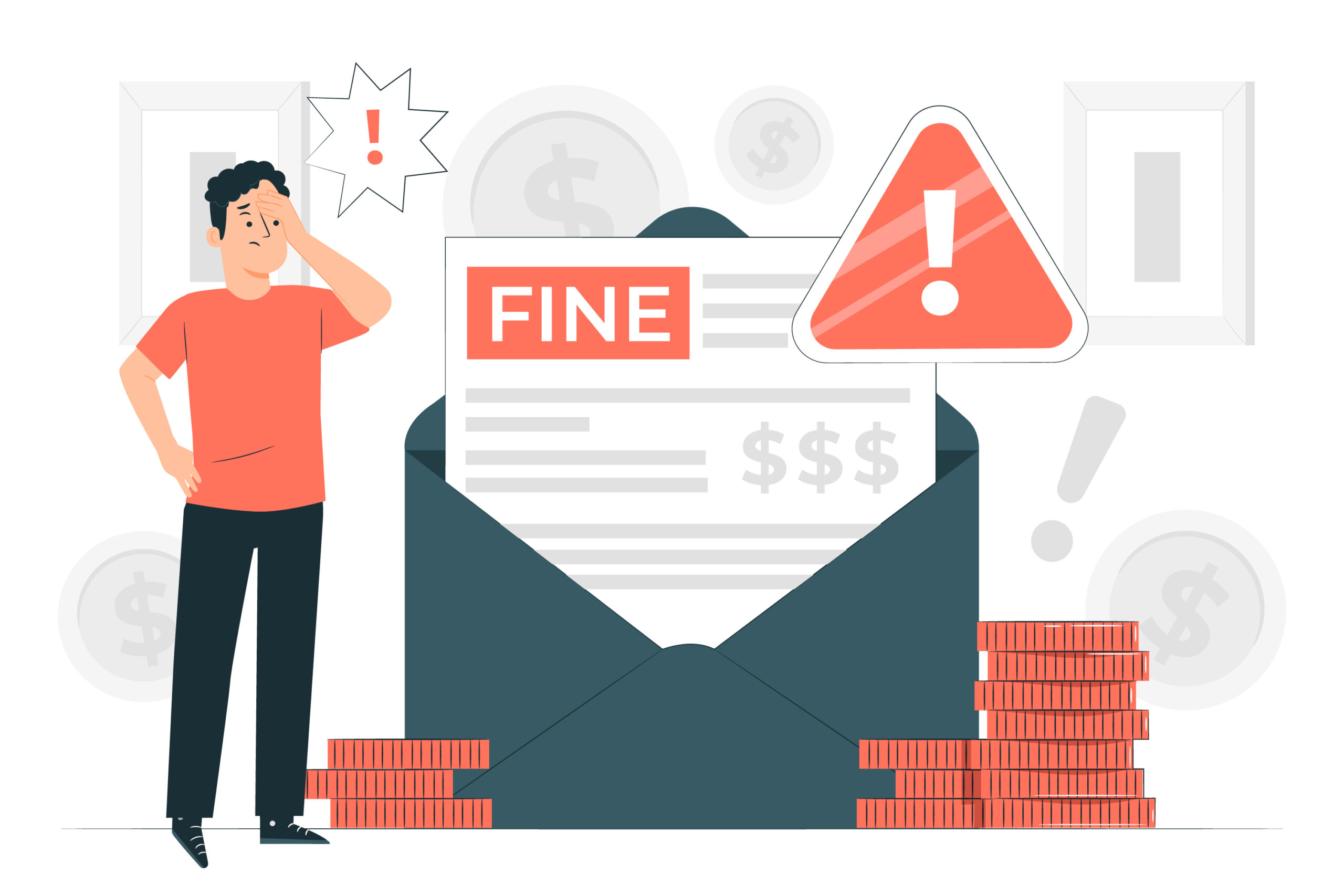Are you facing a breach of contract and searching for solutions? Look no further! In this comprehensive blog post, we will guide you on handling and resolving breach of contracts effectively or perhaps make you thorough with breach of contract and remedies. Contractual disputes can be incredibly frustrating and costly, but you can navigate the challenges and find a satisfactory resolution with the right approach.
Our team of legal experts has analyzed various breach of contract scenarios and compiled a step-by-step guide that will empower you to tackle the situation head-on. From understanding the basics of contract law to evaluating your options for resolving the breach of contract and explaining the remedies for the breach of contract.
Understanding Breach of Contracts

Let us understand what is breach of contract but before we delve into the strategies for handling and resolving a breach of contract, it is crucial to understand what constitutes a breach. A breach of contract occurs when one party fails to fulfill their obligations as outlined in the agreement. Breach of contract meaning can take various forms, such as non-payment, failure to deliver goods or services, or violation of specific terms and conditions.
To determine if a breach has occurred, you should carefully review the terms of the contract and identify the specific obligations both parties agreed upon. It is essential to establish clear evidence of the breach, such as correspondence, invoices, or any other relevant documentation. Once you have identified the breach, you can proceed with the appropriate steps to address the situation.
Related Article: What Are Contract Terms & Legal Jargon? Master The Basics
Common Challenges Faced During Contract Breaches

When a contract breach occurs, both parties involved face numerous challenges that can significantly impact their businesses. One of the primary challenges is the potential disruption of ongoing operations. A breach of contract can disrupt the smooth flow of business activities, leading to delays, financial losses, and damaged reputations. This disruption can be particularly detrimental in industries where time-sensitive projects are common.
Another challenge is the difficulty of quantifying the damages caused by the breach. Assessing the monetary value of the damages suffered can be complex, especially when intangible factors such as reputational damage are involved. Additionally, there may be challenges in determining whether the damages are direct or consequential.
Furthermore, contract breaches can strain business relationships and undermine trust between the parties involved. This strain can have long-lasting effects on future collaborations and partnerships. Navigating these challenges requires careful communication, negotiation, and a proactive approach to finding a resolution that satisfies both parties.
Types of Breach of Contracts
Breach of contracts can be categorized into three main types: minor, material, and fundamental breaches. Understanding these distinctions is crucial as they affect the remedies available to the aggrieved party. The following can be anticipatory breach of contract:
- Minor breaches: These breaches involve a partial failure to meet contractual obligations and typically have minimal impact on the overall agreement. The non-breaching party is entitled to seek damages to recover any losses suffered due to the breach.
- Material breaches: Material breaches are more significant and go to the heart of the contract. They occur when a party fails to fulfill a substantial part of their obligations, rendering the contract substantially useless. In such cases, the non-breaching party may have the right to terminate the contract and seek compensation for any damages incurred.
- Fundamental breaches: A fundamental breach is the most severe type of breach as it goes directly against the core purpose of the contract. It essentially renders the contract void and allows the non-breaching party to terminate the agreement immediately. The aggrieved party can then pursue legal action to recover damages and other remedies.
At last, we can conclude that the above-mentioned were the different types of breach of contract.
Related Article: How To Enforce Contract Legally? Expert Tips
Legal Consequences of Breach of Contracts

When a breach of contract occurs, it is essential to understand the legal consequences and the remedies available to the non-breaching party. The following are some of the common legal remedies that may be pursued:
Damages: Damages are the most common form of remedy sought in breach of contract cases. The purpose of damages is to compensate the non-breaching party for any losses suffered as a result of the breach. There are different types of damages, including compensatory, consequential, and punitive damages, depending on the circumstances of the breach.
Specific performance: In certain situations, monetary compensation may not be an adequate remedy. In such cases, the non-breaching party may seek specific performance, which requires the breaching party to fulfill their obligations as outlined in the contract. This remedy is typically sought in cases where the subject matter of the contract is unique or where monetary compensation is insufficient.
Rescission and restitution: Rescission involves canceling the contract and returning both parties to their pre-contractual state. This remedy is typically sought when the breach is so severe that the contract cannot be effectively enforced. Restitution, on the other hand, involves returning any benefits or payments received under the contract.
Related Article: What Is A Contract? Definition, Importance And Key Terms
Steps to Take When a Breach of Contract Occurs

When faced with a breach of contract, it is crucial to take immediate action to protect your rights and interests. The following steps will guide you through the remedies for breach of contract:
Review the contract: Start by carefully reviewing the terms and conditions of the contract to ensure that a breach has occurred. Identify the specific obligations that have been violated and gather any supporting documentation.
Carefully examine the terms of the contract to identify the specific obligations that have been breached. This will help determine the severity of the breach and the available remedies.
Document the breach: Compile all relevant evidence and documentation that substantiates the breach, such as emails, invoices, and delivery records. This evidence will be essential in supporting your claim and seeking appropriate remedies.
Notify the breaching party: Once you have established a breach, promptly notify the other party in writing. Clearly outline the nature of the breach and the desired resolution. It is essential to maintain a professional and cordial tone throughout the communication.
Contact the party responsible for the breach to discuss the issue and explore the possibility of resolving the matter amicably. Open and transparent communication can sometimes lead to mutually beneficial solutions without resorting to legal action.
Evaluate your options: After notifying the breaching party, assess your options for resolving the breach. Consider whether negotiation, mediation, or arbitration may be viable alternatives to litigation. Each option has its advantages and disadvantages, so it is crucial to choose the best course of action based on your specific circumstances.
Consider alternative dispute resolution: Mediation and negotiation can provide a more cost-effective and efficient way to resolve contract disputes compared to litigation. Engaging in alternative dispute resolution methods can help preserve business relationships and achieve a satisfactory outcome for both parties. Also, consider other remedies available for breach of contract.
Evaluating the Damages Caused by the Breach
Determining the extent of damages caused by a breach of contract is a crucial step in the resolution process as it will clarify what remedies for breach of contract are to be used. Proper evaluation of damages will help you determine the appropriate compensation to seek. When assessing damages for breach of contract, consider the following factors as they are kinds or types of damages:
Direct and indirect losses: Calculate the direct losses resulting from the breach, such as financial losses, lost profits, or additional expenses incurred. Additionally, consider any indirect losses caused by the breach, such as damage to reputation or loss of business opportunities.
Mitigating damages: The non-breaching party must mitigate damages by taking reasonable steps to minimize the losses suffered. Failure to mitigate damages may limit the compensation available in a legal claim. Keep thorough records of your efforts to mitigate damages to strengthen your case.
Foreseeable damages: Consider whether the damages resulting from the breach were reasonably foreseeable at the time of contract formation. Parties are generally only responsible for damages that were within their contemplation when agreeing.
Negotiating a Resolution with the Other Party

In many cases, it is in the best interest of both parties to negotiate a resolution without resorting to litigation. Negotiation allows for a more flexible and cost-effective approach to resolving the breach of contract. Here are some tips for successful negotiation:
Prepare your case: Before entering into negotiations, thoroughly prepare your case by gathering all relevant evidence and documentation. Understand your legal rights and the potential remedies available to you.
Identify common ground: Look for areas of agreement or mutual interest that can serve as a starting point for negotiations. Finding common ground can help build rapport and facilitate a more productive discussion.
Maintain open communication: Effective communication is key to successful negotiations. Clearly express your concerns, listen actively to the other party’s perspective, and be open to compromise. Avoid personal attacks or confrontational language that may hinder progress.
Related Article: Contract Negotiation: Proven Strategies For Collaboration
Mediation and Arbitration as Alternative Dispute Resolution Methods
Mediation and arbitration are alternative dispute resolution methods that offer a less formal and adversarial approach compared to traditional litigation. These methods can be particularly useful in resolving breach of contract disputes. Here’s an overview of each:
Mediation: In mediation, a neutral third party, known as the mediator, facilitates communication between the parties to help them reach a mutually acceptable resolution. The mediator does not make decisions but rather assists with identifying common ground and exploring potential solutions. Mediation is a voluntary process, and the outcome is non-binding unless both parties agree otherwise.
Arbitration: Arbitration involves presenting the dispute to a neutral third party, known as the arbitrator, who acts as a private judge. Arbitration can be binding or non-binding, depending on the agreement of the parties. It offers a more formal process than mediation and typically involves presenting evidence and arguments to support your case.
Preventing Future Breaches of Contracts

Prevention is always better than cure when it comes to breaches of contracts. While it is impossible to eliminate all risks, there are proactive steps you can take to minimize the likelihood of future breaches. Consider the following strategies:
Thoroughly review contracts: Carefully review and negotiate contracts before signing them. Ensure that the terms and conditions are clear, unambiguous, and adequately protect your interests. Regular communication and transparency between the parties can also help prevent breaches.
By maintaining open lines of communication, potential issues or concerns can be addressed promptly, allowing for timely resolutions before they escalate into breaches. Additionally, conducting thorough due diligence on the other party before entering into a contract can help identify any potential risks.
Maintain open communication: Establishing and maintaining open lines of communication with the other party can help prevent misunderstandings and promote a collaborative approach to contract fulfillment.
Mitigating Breach Risks and Managing Contractual Obligations
When entering into a written contract, it’s essential to understand the potential consequences of a breach, whether it’s an actual breach or an immaterial breach. Clear contract terms outlining the performance of the contract can help prevent misunderstandings and disputes down the line.
For example, in real estate transactions, adhering to the terms of the agreement, including the due date for payments and delivery of documents, is crucial to avoid breaches. In the event of a breach, the innocent party may seek compensatory damages to mitigate the monetary damages incurred. If the breach is severe enough, it may lead to the termination of the contract and even result in a breach of contract lawsuit.
Therefore, having a legal team well-versed in contract law across different departments can be a good idea to handle such situations effectively. By maintaining meticulous records of contract data and promptly addressing any breaches, businesses can minimize the consequences of a breach and protect their interests.
Related Article: What Are Contractual Obligations? Your Master Guide
FAQs
1. What is a breach of contract?
A breach of contract occurs when one party fails to fulfill their obligations as outlined in the written contract. It can range from minor to serious breaches, impacting the performance of the contract.
2. What are compensatory damages?
Compensatory damages are monetary awards intended to compensate the innocent party for the losses incurred due to a breach of contract. They aim to restore the non-breaching party to the position they would have been in had the breach not occurred.
3. How can a breach of contract affect business operations?
A breach of contract can disrupt business operations, leading to delays, financial losses, and damaged reputations. It can strain relationships between parties and result in legal disputes, impacting the overall performance of the contract.
4. What steps should be taken when a breach of contract occurs?
When faced with a breach of contract, review the contract terms, document the breach, and notify the breaching party. Explore options for resolution, such as negotiation or legal action, and seek guidance from a legal team if necessary.
5. How can businesses prevent breaches of contracts in the future?
Businesses can prevent breaches by thoroughly reviewing and negotiating contracts, maintaining open communication, and seeking legal advice. By understanding contract terms and obligations, businesses can mitigate risks and foster strong business relationships.
Conclusion
In conclusion, handling and resolving breaches of contracts can be a challenging process, but with the right knowledge and approach, you can protect your rights and achieve a satisfactory resolution. By understanding the different types of breaches, the legal consequences, and the available remedies, you can navigate the complexities of contract law with confidence.
Whether through negotiation, alternative dispute resolution methods, or litigation, always prioritize the protection of your interests and seek professional guidance when needed. Remember, prevention is key, so invest in thorough contract review and proactive risk management to minimize the likelihood of future breaches.
Breaches of contracts pose significant challenges and considerations for businesses and you can find the remedies for breach of contract. However, by understanding the types of breaches, taking preventive measures, and having a strategic approach to resolving disputes, businesses can minimize risks and protect their interests.
We understood what kinds of damages are in breach of contract, effective contract management, regular communication, and seeking legal advice when necessary are vital components of successful contract management.
By prioritizing these factors, businesses can navigate the complexities of breaches of contracts and maintain strong business relationships.





